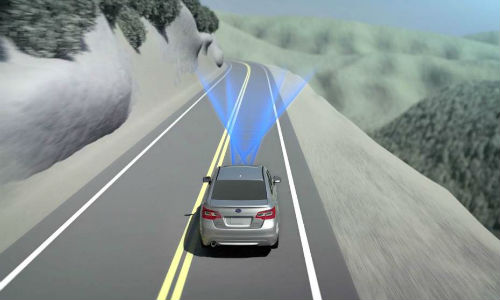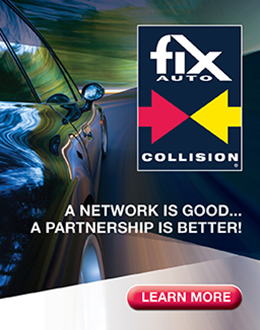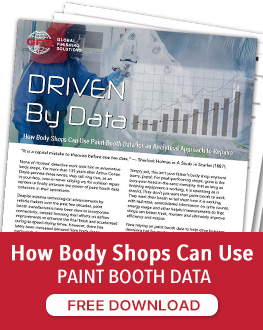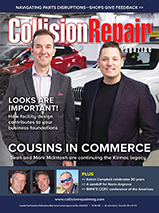By Jeff Sanford
Toronto, Ontario — June 11, 2017 — In this week’s Autonomous Report, we look at Alberta’s reaction to autonomous vehicles (AVs), BlackBerry’s latest product, Nissan’s emergency braking tech and much, much more!
– Waterloo, Ontario-based tech company OpenText recently conducted a survey of 2,000 Canadians on their feelings and attitudes toward AI in key areas such of government services, health care and autonomous vehicles. According to a press release, the findings indicate Canadians think AVs will be on Canadian roads relatively soon. Some of the other findings:
• The majority of Canadians (72 percent) think there will be more autonomous cars on the road than “normal” cars within the next 15 years.
• Despite the majority of Canadians believing autonomous vehicles will outnumber “normal” cars in the near future, only 35 percent said they would feel comfortable being a passenger in a driverless/autonomous car.
• Canadian women were far less likely to say they would feel comfortable (77 percent would be uncomfortable), whereas men were mostly split on the idea (51 percent would feel uncomfortable).
• A slight majority of Canadians think autonomous cars would make the road safer (57 percent).
• Likewise, 62 percent said they would not be frustrated driving in (or following) an autonomous car that obeyed every traffic law without question.
– The city councils of Calgary and Edmonton recently took action to attract AV testing to their cities. In Calgary, five city councillors signed a motion to create a partnership with Calgary Economic Development to develop the city as a test bed for driverless vehicles to “study the merits of testing autonomous vehicles on Calgary’s roadways,” according to a report in the Edmonton Journal. According to one of the councillors, “We might be a bit late. Ontario has been at this for about a year and a half, about 18 [US] states are doing it as well.” Nevertheless, according to the same councillor, manufacturers, vendors and suppliers have said they are interested in the region as it has a “variety of climates and a variety of landscapes,” which is important for AV testing.
– In the case of Edmonton, that city could “soon have its own mini think-tank on self-driving vehicles,” according to a report by Metro. The story notes that a team “reporting directly to the city manager that gets involved in all aspects of city work,” should begin to consider how it is that parking regulations, LRT projects, economic initiatives and poverty reduction strategies will be affected. It was suggested by one expert, Paul Godsmark, co-founder of the Canadian Automated Vehicles Centre of Excellence, that the city’s LRT “may not be able to compete with a fleet of privately operated autonomous taxis in a city as spread out as Edmonton.” Godsmark also suggested that Edmonton rethink its LRT strategy. According to the story city officials have also presented a request for $262,000 to hire two staff (to study AVs), $863,000 for data studies and money for a test shuttle to study the question.
– Nissan Canada announced this past week that it will offer standard Automatic Emergency Braking (AEB) on some of its vehicles in the 2018 model year. According to a Nissan press release, AEB helps avoid or reduce the severity of potential frontal collisions. The models involved are the Rogue, Sentra, Altima and Murano. This move more than doubles the number of standard AEB-equipped Nissan vehicles versus 2017 model year.
The US-based National Highway Traffic Safety Administration (NHTSA) did a study in 2013 that found that one-third of all police-reported crashes involve a rear-end collision. The Nissan press release also mentions a NHTSA report that finds, “… systems such as AEB can help reduce injury insurance claims by as much as 35 percent (2015 report).” The AEB system joins a suite of Nissan safety and driving aid technologies including Intelligent Around View Monitor (I-AVM), Intelligent Distance Control (I-DC), Intelligent Blind Spot Intervention (I-BSI), Intelligent Lane Intervention (I-LI) and Intelligent Driver Alertness (I-DA).
– BlackBerry’s auto software subsidiary, QNX, announced this week the launch of something called a “real-time, type 1 hypervisor” for use in connected and autonomous vehicles. QNX produces software that is used by computers in millions of cars to manage various functions. The new QNX Hypervisor 2.0 is a product that will help safeguard against hacker attacks on connected cars and automated vehicles. Basically it’s an operating system that enables developers to partition and isolate the parts of the computer that handles infotainment services from the part that controls the gas pedal, braking systems, etc. Earlier hacking incidents in connected cars have taken advantage of the fact various area of computer control in a car are all connected.
– Intel’s CEO, Brian Krzanich, recently predicted in an interview with CNBC that autonomous cars will be great for law enforcement as they can “double as security cameras … I always say that the cars are going to be out there looking, so the next time an Amber alert comes up and they’re looking for a license plate, the cars should be able to find that license plate quite rapidly.”
– The AV and connected car phenomenon is part of the wider story of the rise of the Internet of Things (IoT). Shaun Kirby, Director of Automotive and Connected Cars at tech giant Cisco, just penned an article for Venture Beat that discussed the remarkable increase in the IoT. According to Kriby “stratospheric growth in the number of connected devices and sensors in enterprises across all industries,” is occurring right now. “It is estimated that more than 80 ‘things’ per second are connecting to the Internet, and by 2020 there will be a whopping 50 billion things connected to the IoT,” according to Kirby. “In many ways, the connected car can be considered the ultimate ‘thing’ in the IoT. These data centres on wheels are truly the epitome of everyone’s best hopes and greatest challenges when it comes to the IoT … experts estimate that highly automated vehicles will generate four terabytes of data per hour!”





































